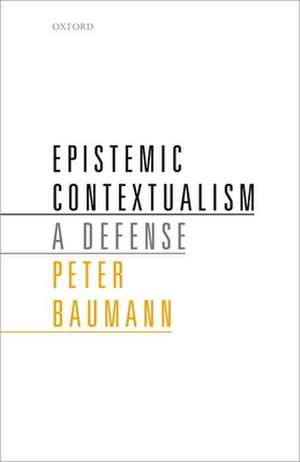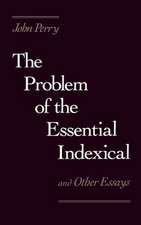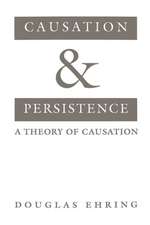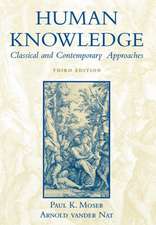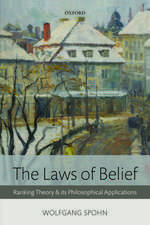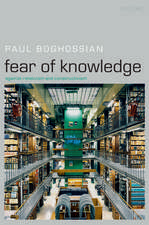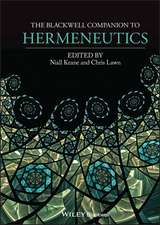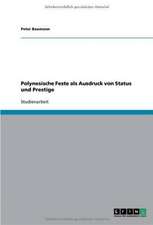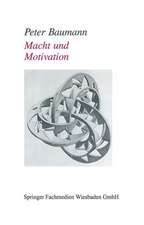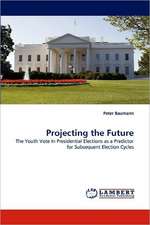Epistemic Contextualism: A Defense
Autor Peter Baumannen Limba Engleză Hardback – 20 oct 2016
Preț: 487.07 lei
Preț vechi: 672.55 lei
-28% Nou
Puncte Express: 731
Preț estimativ în valută:
93.23€ • 101.30$ • 78.36£
93.23€ • 101.30$ • 78.36£
Carte tipărită la comandă
Livrare economică 09-15 aprilie
Preluare comenzi: 021 569.72.76
Specificații
ISBN-13: 9780198754312
ISBN-10: 0198754310
Pagini: 276
Dimensiuni: 166 x 234 x 21 mm
Greutate: 0.57 kg
Editura: OUP OXFORD
Colecția OUP Oxford
Locul publicării:Oxford, United Kingdom
ISBN-10: 0198754310
Pagini: 276
Dimensiuni: 166 x 234 x 21 mm
Greutate: 0.57 kg
Editura: OUP OXFORD
Colecția OUP Oxford
Locul publicării:Oxford, United Kingdom
Recenzii
Those who are familiar with debates over epistemic contextualism will find a stimulating new direction in this book; readers new to those debates, looking for a guide to the literature, will find this as good a starting point as any. In short, there is something here for everyone.
Readers whose interest in contextualism is driven by an interest in scepticism [...] will find new tools for engagement with scepticism without having to settle decades of debate about semantics and pragmatics. Readers uninterested in standard contextualism because scepticism concerns knowledge rather than the semantics of "know" will find a welcome turn from language to epistemology proper. Those who are familiar with debates over epistemic contextualism will find a stimulating new direction in this book; readers new to those debates, looking for a guide to the literature, will find this as good a starting point as any. In short, there is something here for everyone.
In this lucid and thoughtful book, Peter Baumann (2016:2) offers 'a new and fresh exposition and defense' of epistemic contextualism... Baumann' s book is full of original arguments put in the service of exploring and defending epistemic contextualism... significantly enriches our understanding of the basic notion of epistemic context... In light of this novel work, there is little doubt that this is an important book bound to prove influential for the project of epistemic contextualism and knowledge debates more broadly. It is highly recommended to epistemologists and people interested in contextualism as a project in philosophy of language and beyond (e.g. metaethics).
it is one of the many virtues of Baumann's engaging treatment of epistemological contextualism that it provides the material for exploring these overlooked, important and undeniably 'theoretical' questions.
Baumann's book is a superb monograph. His exposition and defence of contextualism is novel, comprehensive, and thought-provoking. In contrast to the typical understanding of contextualism, Baumann provides a new perspective. He considers the arguments for, the objections to, and the theoretical virtues of epistemic contextualism in a thorough fashion. I am especially impressed by his wide coverage of relevant literature in the field. This can be seen in the 25 pages of references. His outstanding mastery of the development of contemporary epistemology contributes to the great value of this book. There is no doubt that epistemic contextualism, especially Baumann's version, will attract much attention.
Given the scope of the topic and its extensive literature, epistemic contextualism has become remarkably difficult to fully defend. Peter Baumann has performed this task beyond expectation... Epistemic Contextualism advances current debates on contextualism in almost every direction and retrospectively penetrates their insufficiently explored bases. This book is a must-read for those who work on contextualism or on epistemology in general.
Baumann's Epistemic Contextualism. A Defense is compelling for various reasons. The presented investigation of contextualism is presumably the most systematic one so far. ... Baumann is clear in style and his analysis raises the discussion with regard to systematicity to the next level. Moreover, the book provides an illuminating overview of the state of the art of the debate about contextualism, extensively engaging with the existing literature. Thus, any reader of Epistemic Contextualism will get an excellent overview of the existing debate about contextualism and the central literature. This intriguing book is a must read for everybody working on contextualism and highly recommended to any professional epistemologist and any reader interested in the topic.
This is an intriguing and informed book defending contextualism in epistemology ... Peter Baumann provides a detailed, sustained and original argument to the conclusion that the truth value of "S knows that p" depends on the context of the speaker and that it does so in numerous and complex ways. Objections are competently dealt with as they arise, and contextualism is finally contrasted with some alternative views ... Baumann has succeeded in producing a systematic and, in several respects, strikingly original defence of contextualism, bringing together a lot of work he has published elsewhere. The result is a convincing, well-argued and readable book which is also highly useful as an overview because it covers a lot of ground and contains extensive references to, and in-depth discussions of, a considerable portion of the relevant literature, as evidence by the extensive (25-page!) bibliography.
Readers whose interest in contextualism is driven by an interest in scepticism [...] will find new tools for engagement with scepticism without having to settle decades of debate about semantics and pragmatics. Readers uninterested in standard contextualism because scepticism concerns knowledge rather than the semantics of "know" will find a welcome turn from language to epistemology proper. Those who are familiar with debates over epistemic contextualism will find a stimulating new direction in this book; readers new to those debates, looking for a guide to the literature, will find this as good a starting point as any. In short, there is something here for everyone.
In this lucid and thoughtful book, Peter Baumann (2016:2) offers 'a new and fresh exposition and defense' of epistemic contextualism... Baumann' s book is full of original arguments put in the service of exploring and defending epistemic contextualism... significantly enriches our understanding of the basic notion of epistemic context... In light of this novel work, there is little doubt that this is an important book bound to prove influential for the project of epistemic contextualism and knowledge debates more broadly. It is highly recommended to epistemologists and people interested in contextualism as a project in philosophy of language and beyond (e.g. metaethics).
it is one of the many virtues of Baumann's engaging treatment of epistemological contextualism that it provides the material for exploring these overlooked, important and undeniably 'theoretical' questions.
Baumann's book is a superb monograph. His exposition and defence of contextualism is novel, comprehensive, and thought-provoking. In contrast to the typical understanding of contextualism, Baumann provides a new perspective. He considers the arguments for, the objections to, and the theoretical virtues of epistemic contextualism in a thorough fashion. I am especially impressed by his wide coverage of relevant literature in the field. This can be seen in the 25 pages of references. His outstanding mastery of the development of contemporary epistemology contributes to the great value of this book. There is no doubt that epistemic contextualism, especially Baumann's version, will attract much attention.
Given the scope of the topic and its extensive literature, epistemic contextualism has become remarkably difficult to fully defend. Peter Baumann has performed this task beyond expectation... Epistemic Contextualism advances current debates on contextualism in almost every direction and retrospectively penetrates their insufficiently explored bases. This book is a must-read for those who work on contextualism or on epistemology in general.
Baumann's Epistemic Contextualism. A Defense is compelling for various reasons. The presented investigation of contextualism is presumably the most systematic one so far. ... Baumann is clear in style and his analysis raises the discussion with regard to systematicity to the next level. Moreover, the book provides an illuminating overview of the state of the art of the debate about contextualism, extensively engaging with the existing literature. Thus, any reader of Epistemic Contextualism will get an excellent overview of the existing debate about contextualism and the central literature. This intriguing book is a must read for everybody working on contextualism and highly recommended to any professional epistemologist and any reader interested in the topic.
This is an intriguing and informed book defending contextualism in epistemology ... Peter Baumann provides a detailed, sustained and original argument to the conclusion that the truth value of "S knows that p" depends on the context of the speaker and that it does so in numerous and complex ways. Objections are competently dealt with as they arise, and contextualism is finally contrasted with some alternative views ... Baumann has succeeded in producing a systematic and, in several respects, strikingly original defence of contextualism, bringing together a lot of work he has published elsewhere. The result is a convincing, well-argued and readable book which is also highly useful as an overview because it covers a lot of ground and contains extensive references to, and in-depth discussions of, a considerable portion of the relevant literature, as evidence by the extensive (25-page!) bibliography.
Notă biografică
Peter Baumann is a Professor of Philosophy at Swarthmore College. He went to University in Göttingen (Germany) and Paris (Sorbonne; IEP). He received all of his degrees at the University of Göttingen. He has taught at the University of Göttingen, Hamburg University (Germany), Swarthmore College (USA), the University of Aberdeen (UK), and Wooster College (USA). From 1993-1995, he was a visiting fellow at the Philosophy Department at Stanford University.
